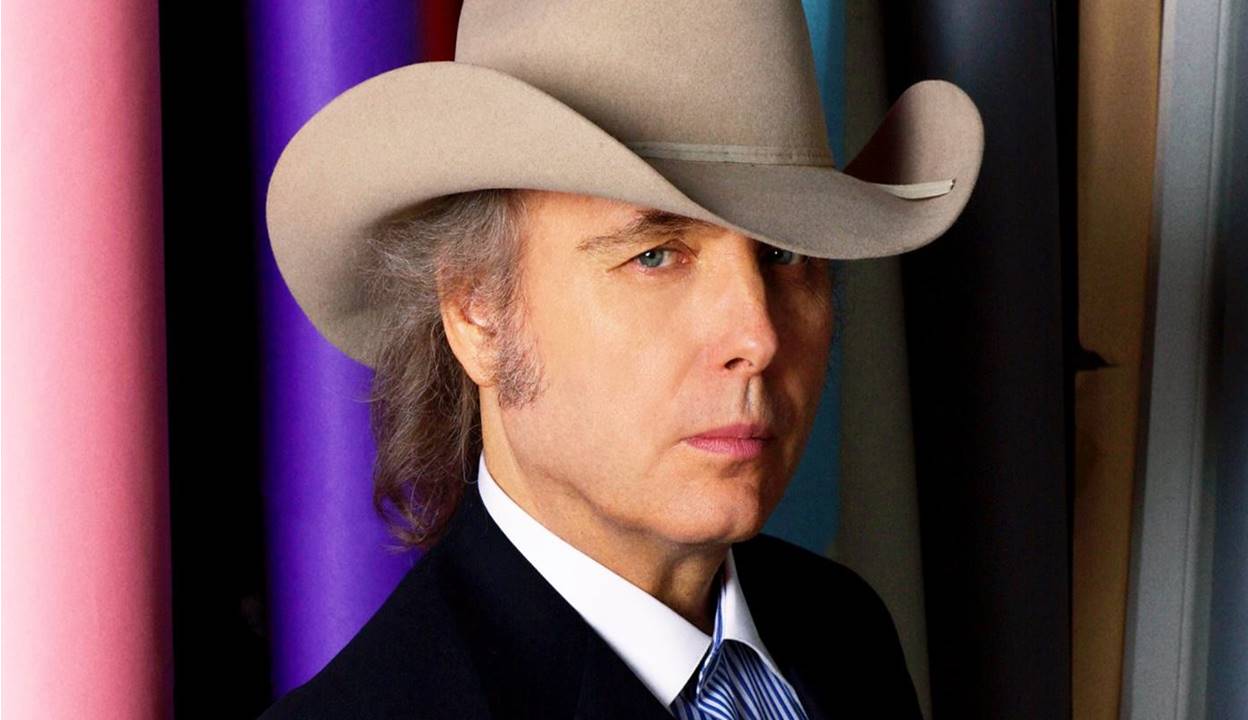
A neon prayer in three-and-a-half minutes — “Dim Lights, Thick Smoke (and Loud, Loud Music)” finds Dwight Yoakam back under the barroom bulbs, tipping his hat to honky-tonk wisdom and the Bakersfield ghosts that raised him.
Put the anchors up front. Dwight Yoakam cut “Dim Lights, Thick Smoke (and Loud, Loud Music)” for his 2012 comeback LP 3 Pears (Warner Bros. Nashville), where it appears as track three. The album arrived on September 18, 2012, debuting at No. 18 on the Billboard 200 and climbing to No. 3 on Top Country Albums—Yoakam’s strongest album-chart showing in years. “Dim Lights, Thick Smoke” itself wasn’t worked as a standalone single; it lived—and still lives—as the album’s first full-on honky-tonk grin, a tidy 3:42 that moves like last call and first resolve.
The song he chose to revive has older bones. “Dim Lights, Thick Smoke” was written in the early 1950s by Joe Maphis, Rose Lee Maphis, and Max Fidler; the earliest recording came from Flatt & Scruggs in December 1952, and Joe & Rose Lee Maphis issued their own single in 1953. Maphis later said the song was born of Bakersfield nights—Blackboard Café neon, Buck Owens onstage, and the realization that some hearts learn to live where the fiddles are loud and the air is blue. That lineage explains why the tune fits Yoakam like a well-worn jacket: it’s Bakersfield grammar written into three chords and a vow.
There’s a small release-day story worth keeping. The cut premiered to fans the week before the LP dropped, an early listen that made clear what 3 Pears would be at its warmest: country music with a dancer’s pulse, not a museum label. And while 3 Pears famously features a few collaborations with Beck elsewhere, Yoakam’s stamp is the steady hand here—producer, bandleader, historian—folding the song back into the room where it started: a bar, a bandstand, a chorus that feels like company.
What you hear first is intention. Yoakam doesn’t try to out-race the bluegrass bite of Flatt & Scruggs or out-shout the country-rock descendants who’ve covered it since; he lopes. The drums walk; the Telecasters glow more than they bark; the pedal steel hangs like cigarette smoke at the edge of the melody. He sings in that high, lonesome burr—closer to a witness than a showman—and he lets the title phrase do the heavy lifting, each repetition a shrug that knows how Friday night can turn into Monday morning if you’re not careful. The performance is confident, but never slick; it’s the sound of a man who’s carried this song around long enough to know where the hurt hides and where the humor lives.
For older listeners—those who remember when the Bakersfield sound felt like a polite rebellion on AM radio—the lyric’s small sermon still lands: some folks keep their hearts safe by keeping them loud. That’s the paradox the song names with a wink. Dim lights and thick smoke are both warning and refuge; loud music is the cover a soul uses while it figures itself out. Yoakam doesn’t judge that bargain; he recognizes it. He has spent a career finding the dignified center of songs like this, and here he lets the groove carry a lesson country music has been teaching for seventy years: sometimes you make peace with your restlessness, and sometimes you dance it out.
Context sweetens the meaning. 3 Pears was Yoakam’s return to the big leagues after a few indie-label years—his first studio album in seven—and the critical consensus quickly anointed it one of his finest sets. By planting “Dim Lights, Thick Smoke” near the top, he’s saying out loud what the album whispers throughout: the Bakersfield code still holds. You can experiment, widen the colors, salute pop and rock as cousins—but when the room needs truth, you go back to a honky-tonk hymn that knows the difference between bravado and survival.
And accuracy matters to the memory: the song itself predates Yoakam by decades—it’s the work of Joe & Rose Lee Maphis and Max Fidler, first captured on wax in 1952–53 and covered by everyone from Conway Twitty to The Flying Burrito Brothers and Ricky Skaggs. Yoakam’s 2012 cut slides into that long family photo without a fuss and, in doing so, reminds you what makes these standards endure: plain words, a friendly backbeat, and a melody that keeps the door open for anyone who’s ever needed a barstool and a little forgiveness.
Play it now and notice how the record breathes. There’s air around the snare, room for the bass to lope, and just enough grit in the vocal to keep the shine honest. No grand key change, no fireworks; the chorus doesn’t demand, it invites. That’s why this track, tucked inside 3 Pears with its Top-3 country and Top-20 pop chart run, still feels like a modest triumph: it turns history into hospitality. Yoakam doesn’t argue for his place in the lineage; he proves it the old-fashioned way—by making an old song feel like your song again.